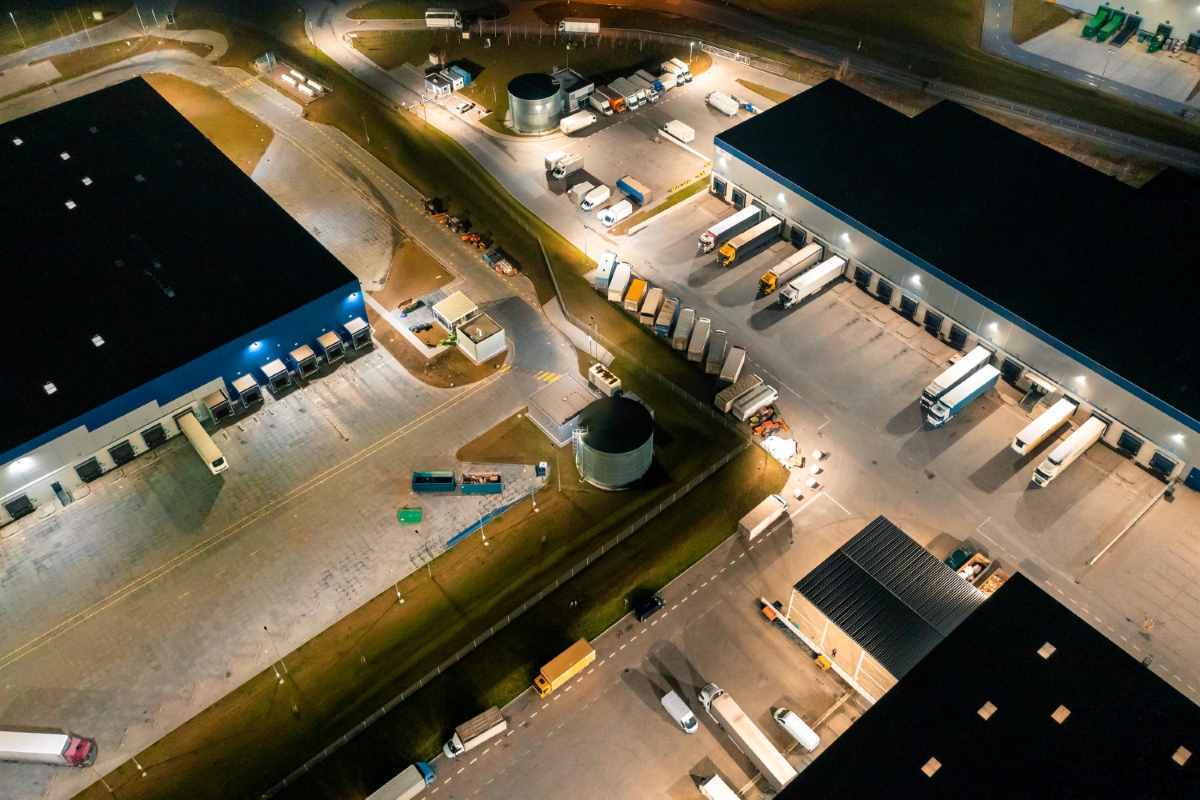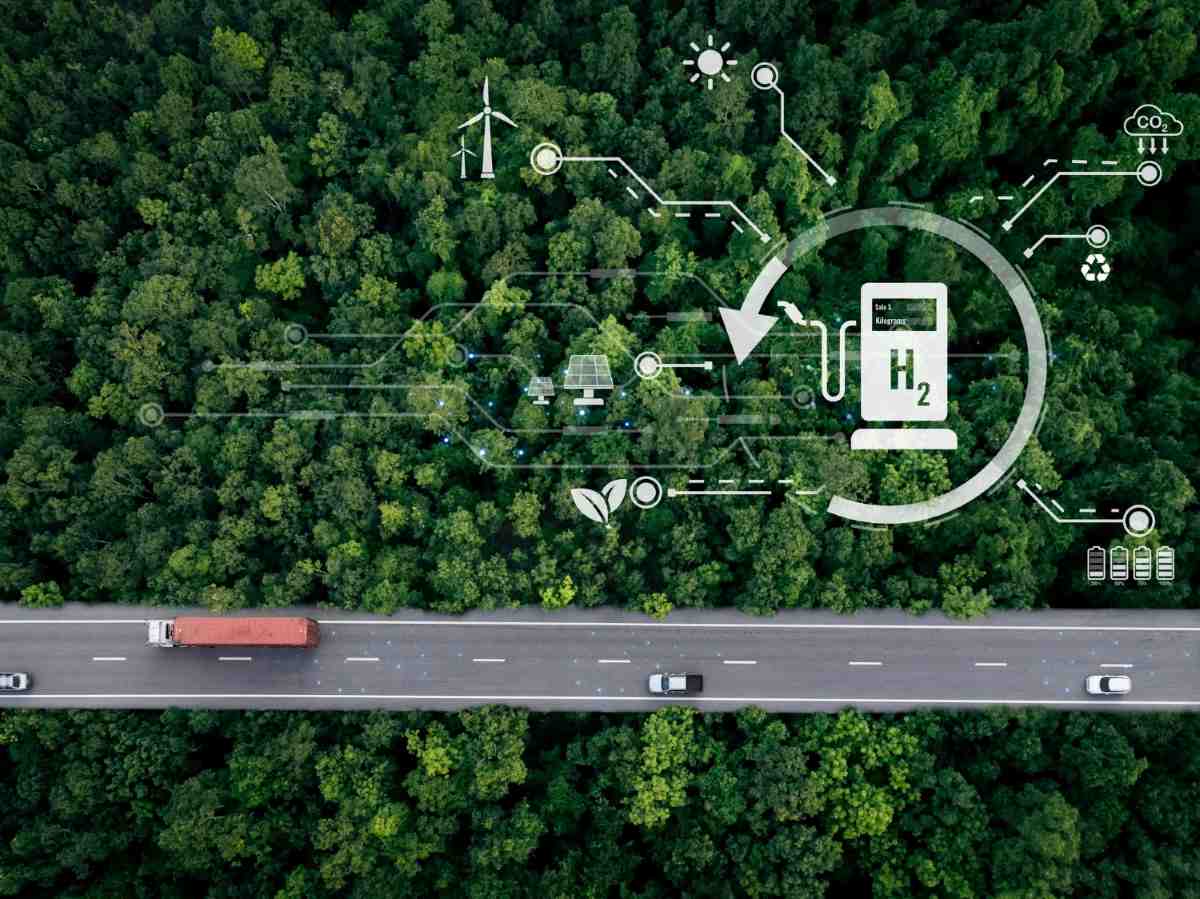The Role of DEF Production in Green Logistics
DEF production is a cornerstone of sustainable transportation, enabling diesel engines to significantly reduce nitrogen oxide (NOx) emissions. Diesel Exhaust Fluid (DEF) is a critical component for Selective Catalytic Reduction (SCR) systems, which convert harmful emissions into harmless nitrogen and water vapor. This process aligns with the goals of green logistics by reducing the environmental impact of freight transportation.
As logistics companies strive to meet stringent environmental regulations, the demand for high-quality DEF production continues to grow. By ensuring a reliable supply of DEF, manufacturers play a pivotal role in supporting cleaner and more sustainable transportation systems worldwide.
Reducing Emissions with DEF
One of the most significant contributions of DEF production to green logistics is its ability to drastically lower NOx emissions. These emissions are a primary source of air pollution and contribute to smog and respiratory issues. SCR systems, powered by DEF, are essential for meeting Euro 6 and similar emission standards globally.
High-quality DEF ensures the effective functioning of SCR systems, enabling logistics companies to operate their fleets while minimizing their environmental footprint. This reduction in emissions not only benefits the environment but also helps companies meet corporate sustainability goals.
The Link Between UAN32 Production and DEF
UAN32 production, or Urea Ammonium Nitrate, shares core processes with DEF manufacturing, particularly in the use of high-purity urea and advanced water purification systems. These synergies allow facilities to optimize resource use and streamline operations, reducing costs while maintaining high-quality standards.
By integrating UAN32 production and DEF manufacturing, companies can achieve greater efficiency and scalability. This integration supports the growing demand for DEF, ensuring the logistics industry has access to the resources it needs to maintain sustainable practices.

AdBlue Production: A Key Component
AdBlue production adheres to the DEF 32.5% standard, ensuring compatibility with SCR systems worldwide. This consistency is critical for logistics companies operating across multiple regions, as it guarantees their vehicles meet local emission standards.
Manufacturers investing in innovative technologies and stringent quality controls ensure that AdBlue production remains reliable and effective. These advancements play a crucial role in supporting the logistics sector’s transition to cleaner transportation solutions.
Sustainability Through Advanced Water Purification
High-quality DEF production relies on ultra-pure water to maintain the chemical stability and effectiveness of the fluid. Advanced purification technologies, such as reverse osmosis and deionization, are essential for achieving the required purity levels. These systems eliminate impurities that could damage SCR systems or reduce their efficiency.
In addition to ensuring product quality, advanced water purification systems contribute to sustainability by enabling water recycling and reducing waste. This focus on sustainable practices aligns with the broader goals of green logistics, supporting a cleaner and more resource-efficient transportation industry.
Sea Water Desalination for DEF Production
Sea water desalination provides a sustainable solution for DEF manufacturing in regions with limited access to freshwater. By converting seawater into high-purity water, desalination plants ensure a consistent supply for DEF production, even in water-scarce areas.
Recent advancements in renewable energy integration have made sea water desalination more cost-effective and environmentally friendly. These innovations allow manufacturers to expand their production capabilities without placing additional strain on natural freshwater resources, supporting the logistics industry’s sustainability goals.

Standardization in AUS Production
AUS production, or AUS32, aligns closely with DEF 32.5% standards, ensuring global compatibility and simplifying logistics. Standardization in AUS production allows manufacturers to produce DEF efficiently and meet the diverse needs of international markets.
By leveraging modular production systems and advanced monitoring technologies, manufacturers of AUS production can scale operations rapidly. This scalability ensures a reliable supply of DEF, supporting the logistics industry’s efforts to reduce emissions and transition to sustainable practices.
The Economic Benefits of Green Logistics
High-quality DEF production supports green logistics by enabling companies to meet environmental regulations while reducing operational costs. By using DEF to lower emissions, logistics companies avoid fines and maintain access to regulated markets. Additionally, DEF ensures the efficient operation of SCR systems, reducing maintenance expenses and extending the lifespan of diesel vehicles.
Investing in sustainable practices, including the use of DEF, positions logistics companies as leaders in environmental responsibility. This commitment to sustainability not only benefits the environment but also enhances the company’s reputation and competitiveness in a market increasingly driven by eco-conscious consumers.
Conclusion
High-quality DEF production is integral to the success of green logistics, enabling the transportation industry to reduce emissions and meet global sustainability goals. By investing in advanced technologies, manufacturers ensure a reliable supply of DEF that meets stringent quality standards and supports SCR system performance.
The integration of UAN32 production, advancements in AdBlue production, and the adoption of innovative practices such as sea water desalination highlight the importance of sustainability in DEF manufacturing. As the logistics industry continues to evolve, these developments will play a critical role in fostering a cleaner, more sustainable future for global transportation.
Frequently Asked Questions
- What is DEF production?
- DEF production involves manufacturing Diesel Exhaust Fluid to reduce NOx emissions in diesel engines using SCR systems.
- How does DEF support green logistics?
- DEF reduces emissions, enabling logistics companies to meet sustainability goals and comply with environmental regulations.
- What is UAN32 production?
- UAN32 production involves creating Urea Ammonium Nitrate, which shares technologies with DEF manufacturing.
- Why is AdBlue production important?
- AdBlue production ensures compatibility with SCR systems and supports emission reduction efforts globally.
- How does water purification affect DEF quality?
- Ultra-pure water ensures DEF remains stable and effective, protecting SCR systems from damage.
- What is sea water desalination?
- Sea water desalination converts seawater into pure water, providing a sustainable source for DEF production.
- What is AUS production?
- AUS production, or AUS32, aligns with DEF 32.5% standards, ensuring global compatibility and quality.
- How does DEF reduce operational costs?
- By ensuring SCR system efficiency, DEF reduces maintenance costs and helps companies avoid regulatory fines.
- Why is standardization important in DEF production?
- Standardization ensures consistent quality and compatibility, supporting the global distribution of DEF.
- Where can I find certified DEF products?
- Certified DEF is available at fuel stations, automotive retailers, and online suppliers worldwide.

